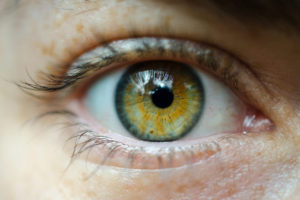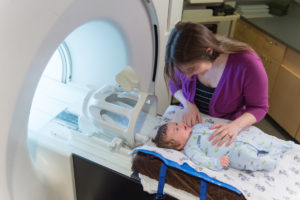For participants in the Center’s Baby Behavior and Brain Project, naptime isn’t just a break for new moms.
These daily rituals also provide researchers an important window for scientific discovery. Using cutting-edge neuroimaging techniques, they are exploring the impact of early experience on child well-being. In the brief span of a 45-minute sleep cycle, the research team observes how brain structures and connections work in a resting state.
“Babies seem like such quiet little beings, but so much is going on from a developmental perspective,” says Nicci Schmidt, manager of the project. “We know a lot about emotional development and how early emotions relate to adolescent brain development, but we know very little about the interplay between the earliest stages of brain and behavioral development.”
Schmidt and colleagues are welcoming mothers and infants participating in a five-year project, which gathers a range of data beginning during pregnancy through the second year of life. Researchers are observing infant behavior, analyzing umbilical cord blood and drawing from extensive surveys with the goal of better understanding how experience shapes the infant brain and promotes child well-being at a behavioral and cellular level.






